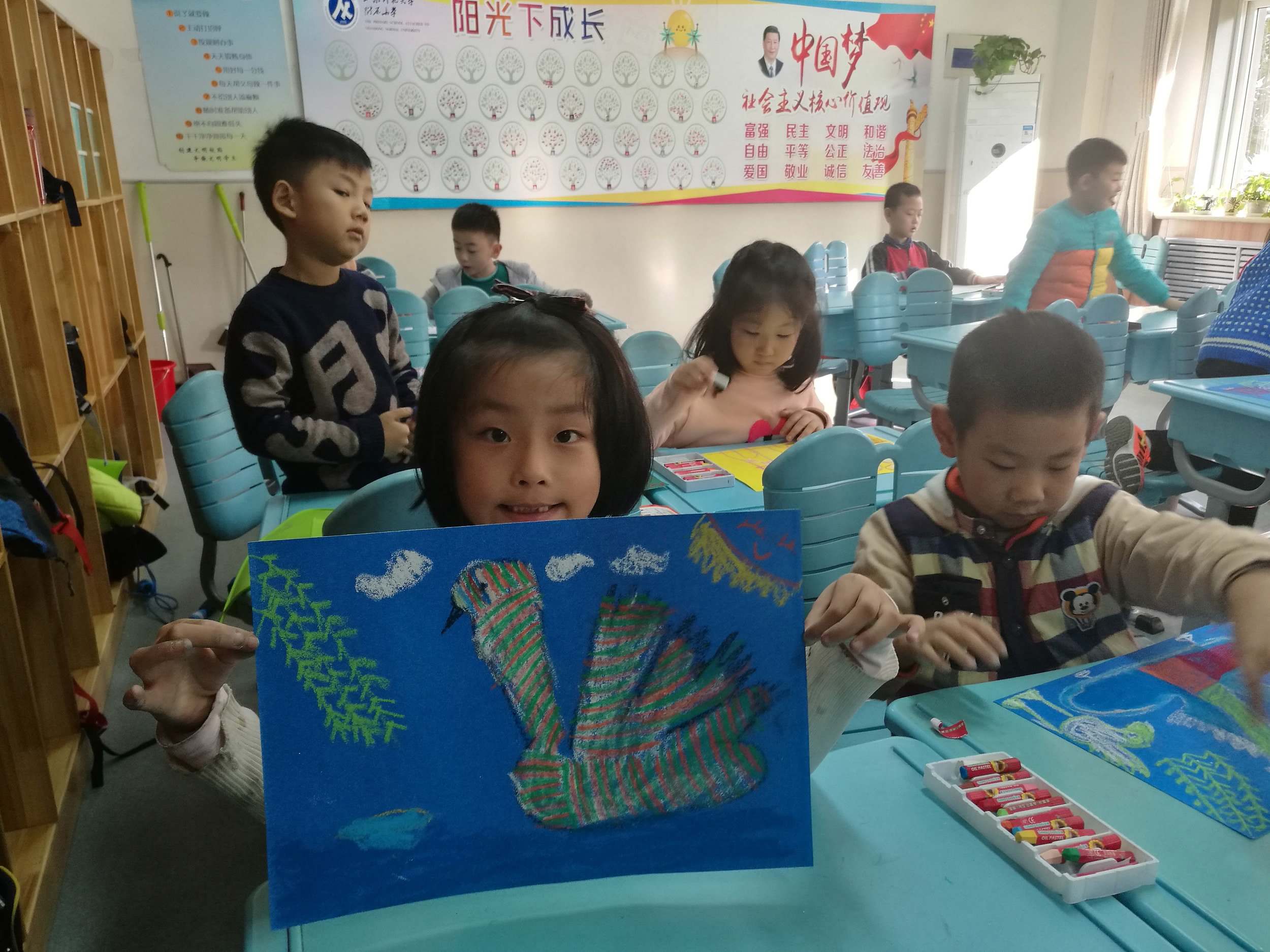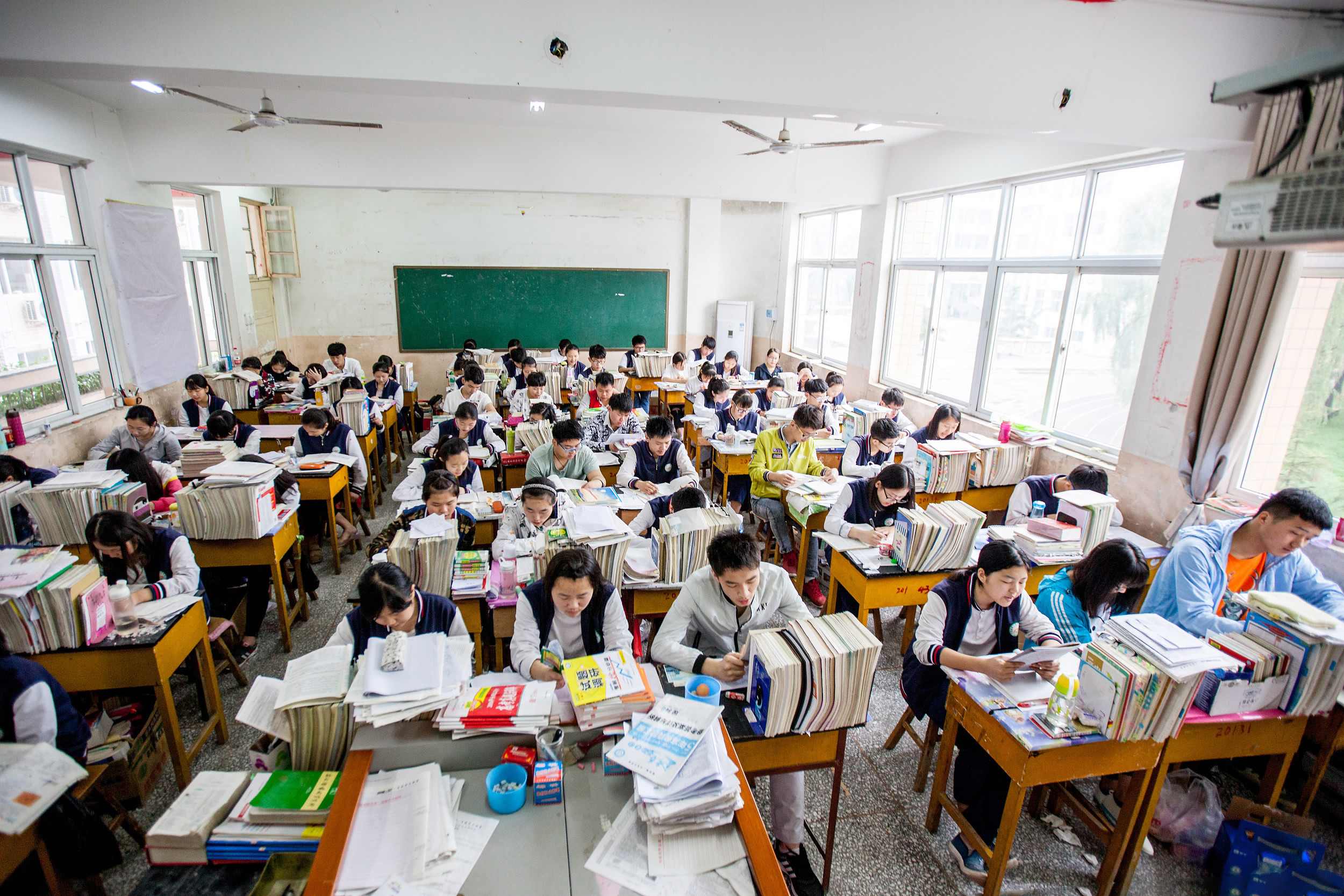
China
17:05, 16-Nov-2017
Homework-busting directive puts onus on Chinese parents’ supervision
CGTN

In China, where there is a common belief that finishing homework meticulously translates into future success, the afterschool assignment can sow discord in the classroom as well as at home, especially when parents are asked to supervise their children’s work.
The latest controversy of the sort has arisen after the local education administrator in Yinzhou district of Ningbo city, Zhejiang Province, decided to give parents more say over whether their children should stay up late to finish homework.
“With an explanatory note to the school from parents, primary school students who cannot finish homework by 10 p.m. are allowed to stop,” the Yinzhou Education Bureau announced on Monday.
The regulation is to “ensure sufficient sleep time for students”, it added.

A primary school student displays her painting at the end of a special class on drawing given by the students' parents in Jinan, Shandong Province, November 3. As China reforms its education system, more and more students are encouraged to pursue an interest in a wider range of areas instead of only those included in the college entrance exams. /Photo from http://jinan.dzwww.com.
A primary school student displays her painting at the end of a special class on drawing given by the students' parents in Jinan, Shandong Province, November 3. As China reforms its education system, more and more students are encouraged to pursue an interest in a wider range of areas instead of only those included in the college entrance exams. /Photo from http://jinan.dzwww.com.
The new policy, meant to affect only the 1.27 million people of the district, has spun out of Zhejiang and attracted attention across China after national newspapers picked up the story.
Many have questioned whether parents should be given the right to let their children off homework. Some parents may use it as an excuse to spoil their kids, critics have said.
“Young children need parental discipline to stay focused on homework because there are more reasons why students fail to finish their afterschool work than that there is too much of it,” said one user of Weibo, China’s equivalent of Twitter.
“Wouldn’t the new rule give spoiled children a way out of doing what they should?” another netizen asked.
The policy does have its advocates, however.
“This is a feasible and practical move to help overworked pupils,” said @nbwudj on Weibo.

Chinese senior high school students working before college entrance exams, June 6, 2017, Henan Province. /VCG Photo
Chinese senior high school students working before college entrance exams, June 6, 2017, Henan Province. /VCG Photo
Limited education resources in China, arguably the world’s largest developing country, are often blamed for putting excessive academic pressure on students from primary school onwards – they are constantly reminded to work hard so as to secure a hot ticket to one of the country’s few top universities, thought to be a springboard to a successful career.
In this context, homework has been criticized for being not so much a means to reinforce knowledge as an exam-oriented tool by which schools keep students on the hop. The pileup of exercise sheets has even affected students’ health, with nearsightedness among Chinese youngsters on the rise.
Education authorities have been trying to relieve the burden on students for decades. The first ever official paper on the matter was issued in 1955, only six years after the founding of the People’s Republic of China.
The economic boom over the past four decades has seen more resources committed to optimizing the education system but higher education opportunities remain in short supply, leaving the issue around homework still open for debate.
In 2013, the education ministry proposed to prohibit primary schools from giving any written homework to their students, but the idea was not well received.
The policy was finalized a year later as no written homework for students of the first and second grades while older children can be given homework which takes no longer than 60 minutes to complete.

SITEMAP
Copyright © 2018 CGTN. Beijing ICP prepared NO.16065310-3
Copyright © 2018 CGTN. Beijing ICP prepared NO.16065310-3